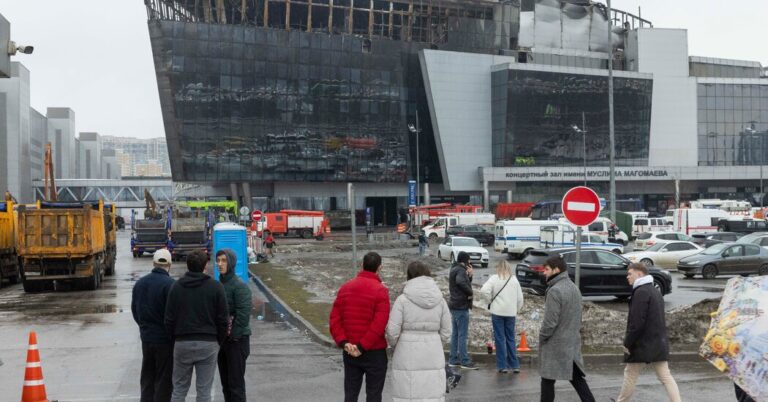Over the past year, Tajikistan’s jihadists have been involved in an unusually high number of terrorist attacks or foiled plots linked to Islamic State.
The suspects in the storming of a concert hall near Moscow last month were Tajiks. Before that, Tajiks had staged bloody assaults in Iran and Turkey, while several projects in Europe involving Tajiks had been thwarted.
Hundreds of men from Tajikistan – a small, poor Central Asian country controlled by an authoritarian president – have joined an Islamic State affiliate in Afghanistan known as Khorasan Province of the Islamic State, or ISIS-Kanalysts say.
They highlight three main reasons why Tajiks are vulnerable to recruitment.
Poverty fuels discontent
Tajikistan is among the poorest countries in the world, pushing millions of workers to seek a better life elsewhere. In a country of 10 million people, the majority of workers, estimated at more than two million, work abroad at any given time.
Most migrants end up in Russia, where widespread discrimination, low wages, poor prospects and isolation make some of them vulnerable to jihadist recruiters. The mothers of the concert hall attack suspects, for example, said their sons faced problems in Russia, such as earning wages too low to pay rent or affording the myriad licenses needed to drive a taxi.
The iron rule of a dictator
The country was plunged into a brutal civil war from 1992 to 1997. President Emomali Rahmon, 71, has ruled Tajikistan since 1994 and extended his term in office for life.
The civil war ended with an agreement allowing some representation of opposition groups, notably the moderate Islamic Renaissance Party. But the group was declared an extremist organization in 2015 and opposition leaders were killed, imprisoned or forced into exile.
As Tajikistan has become an increasingly authoritarian state, the government has exercised ever-tighter control over how Islam is practiced, also pushing some Tajiks to adopt extremist views.
No religious freedom
Restrictions on religious freedom include a rigorous campaign against public signs of piety. Beards are sometimes forcibly shaved in public or hijabs torn off. A powerful committee on religion, regulation of traditions, celebrations and ceremonies oversees all facets of worship, including the construction of mosques and the printing of books. Men under 18 and women are prohibited from praying in mosques, while group religious teaching at home is also prohibited.
The combination of poverty, authoritarian rule and lack of religious freedom created a fertile environment for a targeted online recruitment campaign targeting Tajik men. The effort glorifies the exploits of those killed fighting for ISIS-K, which adopted the ambitions of the Islamic State to fight the West.
Learn more about ISIS-Tajikistan relations here.


